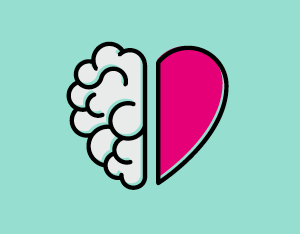If you’re creatively minded, trying to find that ideal role can feel like making a choice between passion or pay.
But there are careers out there that can allow you to put that creativity into action while you’re making a living. Whether you’re interested in designing things, telling stories or improving the customer experience, here are some careers to consider.
- User Experience Designer
This is a great career to consider if you have an eye for design and like to be creative and practical at the same time. User Experience (UX) Designers help to create products that are useful, usable and enjoyable.
They usually work on websites, apps and games, but can also design non-digital products and experiences. UX Designers focus on the needs of users by considering the why, what and how of product use.
- Communications Manager
Do you love leading people, strategising and using your voice? Communications Management could be a great fit for you. This role involves developing communications strategies and overseeing a team within an organisation.
You’ll need to be great at clarifying and sharing messages through all kinds of channels, like speeches, press releases and print and online content. It’s an exciting role with a lot of responsibility.
- Instructional Designer
Combining their project management and communication skills with subject matter knowledge, Instructional Designers create materials for specific learning goals. These can include online courses, seminars, instruction manuals, workshops, tutorials and training modules.
It’s a growing industry and perfect if you like interacting with a range of technology and analysing information. Instructional Designers consult regularly with clients and stakeholders, so it’s an ideal job for people who like collaborating.
- Civil Designer
Want to help design key infrastructure for the future? Civil Designers work on everything from roads, bridges and railways to earthworks and commercial, industrial and residential developments.
They use computer-aided design (CAD) programs to draft, produce, scale and fine-tune drawings and maps. This requires technical knowledge and ability in things like interpreting civil engineering drawings and building plans, so training in civil engineering or engineering technology is necessary.
- Fashion designer
Is style what sparks your interest? Fashion designers create original clothing, accessories, and footwear. They identify trends, sketch designs, select fabrics, materials and patterns, and give instructions on how to make the products they design.
Creativity and visualisation skills are essential, as well as technical skills, like drawing and sketching. Confidence and perseverance are also important personal qualities in an industry known for its competitiveness. Successful fashion designers also have a brain for business, marrying their creativity with market appeal.



